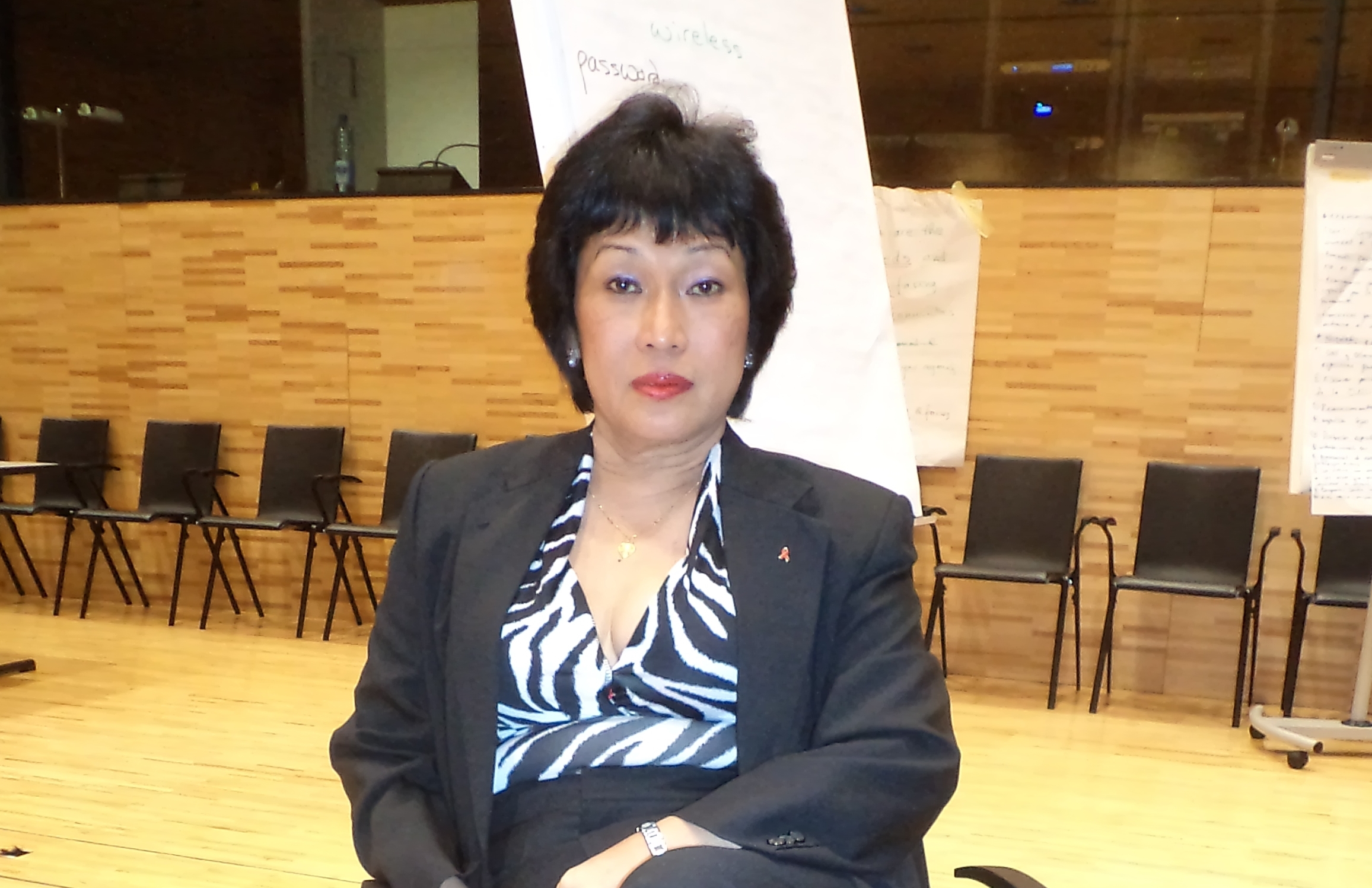
Human rights defender's story: Khartini Slamah from Malaysia
Khartini Slamah, a dedicated Malaysian transgender rights defender, works tirelessly on HIV/AIDS and LGBTI rights, facing challenges in a country where legislation and societal norms significantly hinder the LGBTI community's freedoms.
Khartini Slamah is a Malaysian transgender human rights defender working on HIV/AIDS and the rights of lesbian, gay, bisexual, transgender, and intersex (LGBTI) people. She has more than 27 years’ experience in HIV/AIDS work at the national, regional and International levels, working closely with the transgender and sex worker communities. She currently works with ISEAN Hivos Program, PT Foundation as the transgender program manager in Malaysia.
A former trainee of an ISHR human rights training, Khartini participated in advocacy activities at the current 27th session of the Human Rights Council. ISHR asked her about her activities, her views on the situation of LGBT rights defenders in Malaysia, and her opinion on whether and why the Council should pass a Sexual Orientation and Gender Identity (SOGI) Resolution at this session.
‘I felt I was being treated like rubbish, and that made me desire to change things’
Khartini began her work as a human rights defender when the Malaysian authorities charged her for ‘cross-dressing’, under the Sharia law. After a painful two-year legal battle, which she lost, Khartini decided to keep on fighting. She did so not only for her personal sexual orientation, but also for the more ‘holistic purpose’ of advocating LGBT rights in her country.
‘The government in Malaysia has progressively fostered hatred and violence among citizens against LGBTI people. These issues are not just religious ones: they have become over-politicised. As a consequence, all human rights groups in Malaysia are now silenced’
In Malaysia LGBT people face numerous challenges. Sharia law imposes strong – depending on the district in which the law is applied – restrictions to the freedom, and even to the existence, of LGBT people. However, it is not just Islamic law that is responsible for this. Since 2012, Khartini says the Malaysian government has used zero-tolerance in its discourses and practices against LGBT communities, and it is frequent to witness cases of hatred crimes such as harassment, beating and even raping of LGBT people.
Additionally, NGOs specialised in LGBT and HIV issues find a lot of interference by religious organisations, normally financed by the government. These organisations, while pursuing the objective of making LGBTs ‘repent’ from their identity, leave other NGOs without funds.
The overall situation clearly makes it very difficult for activists like Khartini to promote and protect LGBT rights: defenders in Malaysia need to keep a very low profile. Publicising such activities, Khartini says, would push the whole LGBT community underground.
Ultimately, the main goal for LGBT activists in Malaysia is to achieve the recognition of basic rights such as equal job opportunities and access to healthcare. This would be possible, in Khartini’s view, through the elimination of discriminatory legislation, and the end of violent practices to which the government and the local authorities are complicit. To achieve this, she says, it is very important to find new policy tools and means of communicating with policy makers about LGBT issues.
‘It’s time for transgender people in Asia to get together and reflect upon what doing advocacy means, and what we are advocating for. Moving issues, bringing them into the right fora, that’s what I am trying to do’
In pursuing these goals, knowing the UN human rights system is, if not crucial, certainly an asset. ‘It is very interesting to be in touch with the system directly, participating to negotiations and events, understanding how things actually work and how to better engage in order to be listened. Once I am back home, I can share all this information with my community. It is important not only for Malaysia, but also Asia as a region’ states Khartini.
‘The Human Rights Council should adopt a resolution on human rights, sexual orientation and gender identity at this session. Such action would have a worldwide impact and would help minimizing the dangers for LGBT groups including by simply recognising that they exist.’
The Human Rights Council’s action can in her view have meaningful symbolic connotation, i.e. that of an authority with the ability of making the human rights of vulnerable groups be recognised globally. However, she notes, more needs to be done by the UN system.
‘The Human Rights Council should put more pressure on countries, especially when it comes to implementation. In fact, many states like Malaysia are often inconsistent between what they sign and what they do’
For more information on the work of PT Foundation see: http://ptfmalaysia.org/v2/
